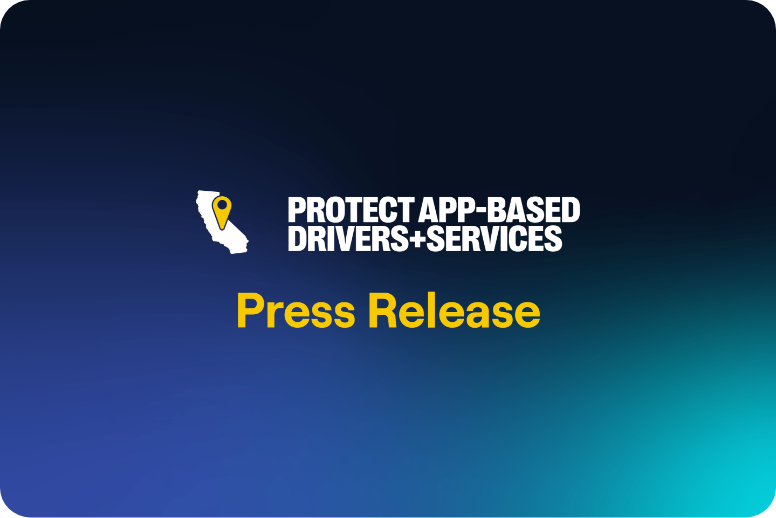Without Prop 22, rideshare and delivery services could also be eliminated altogether in many areas
SACRAMENTO — An independent study from the Berkeley Research Group (BRG) found that an employment model for app-based rideshare and delivery services will have devastating consequences for consumers, increasing rideshare costs between 25% and 100%, doubling wait times, and eliminating services altogether in many areas across California.
Rural and traditionally underserved communities will be hit the worst if Prop 22 isn’t enacted. BRG’s report found that under an employment model, app-based rideshare and delivery services will be limited to the most densely populated areas of the state, such as Los Angeles or San Francisco. According to BRG, without Prop 22, consumers across the state would experience higher prices and longer wait times:
- Rideshare costs would increase for consumers by at least 25.9% and as much as 100% in some markets—meaning that a typical $15 ride across town would cost between $19 and $30.
- Food and grocery delivery costs would increase by at least 35.2% and potentially double in some markets.
- An increase in wait times and a decrease in reliability for customers—meaning an average wait time for rideshare of 7 minutes may double to 14 minutes, and food/grocery delivery of 40 minutes may double to 1 hour and 20 minutes or more.
- A reduction of the customer base—meaning little or no services to most Californians living in rural or suburban areas of the state.
“Many people don’t remember what it was like before app-based rideshare and delivery companies arrived on the scene. Cabs often refused to pick up in Black and Brown neighborhoods. It cost an arm and a leg to get anywhere, and food delivery was almost nonexistent,” said Dr. Tecoy Porter, Chairman of the CA State National Action Network. “We need Prop 22 to protect the availability and affordability of these vital services, especially for underserved communities of color.”
In addition, if Prop 22 does not pass, hundreds of thousands of app-based drivers who perform a life-saving service would be taken off the road in places where they are needed most. The loss of safe, reliable, convenient, and affordable rideshare services would undo much of the progress Mothers Against Drunk Driving (MADD) has achieved over the past 40 years in reducing drunk and drugged driving and saving lives.
“Mothers Against Drunk Driving supports Proposition 22 because it will save lives. Rideshare services help keep drunk and drug-impaired drivers off of our roads by providing a safe, reliable, convenient, and affordable alternative to driving,” said MADD National President Helen Witty, whose 16-year-old daughter Helen Marie was killed by a drunk and marijuana-impaired driver on June 1, 2000.
Rideshare is a safe, reliable, convenient, and affordable way to prevent people from getting behind the wheel impaired. DUIs have plummeted by roughly one-third since app-based rideshare services came to California. Prop 22 will protect the availability, accessibility, and affordability of app-based rideshare and delivery services that millions of Californians use daily.
About Proposition 22
Proposition 22 would ensure driver flexibility, by protecting the ability of California’s one million app-based drivers to choose to work as independent contractors while providing new earning guarantees and benefits. These include:
- Prop 22 improves the quality of app-based work by requiring app-based platforms to provide drivers:
- Guaranteed minimum earnings (120% of California minimum wage) plus compensation toward expenses
- Funding for new health benefits for drivers who work at least 15 hours a week
- Occupational accident insurance to cover injuries and illnesses on the job
- Protection against discrimination and sexual harassment
- Prop 22 implements strong new public safety protections:
- Recurring background checks of drivers
- Mandatory new safety courses for drivers
- Zero tolerance for alcohol and drug offenses
- Making it a crime to impersonate a driver
The Latest News

Opinion
I’m an Instacart driver: California Supreme Court must protect my job
By Stephanie Whitfield It may sound dramatic to say that app-based driving saved my life, [...] Read more
News
As Prop. 22 heads to California Supreme Court, support doesn’t break along ideological lines
By Bob Egelko Proposition 22, the 2020 ballot initiative sponsored by Uber and Lyft that [...] Read more